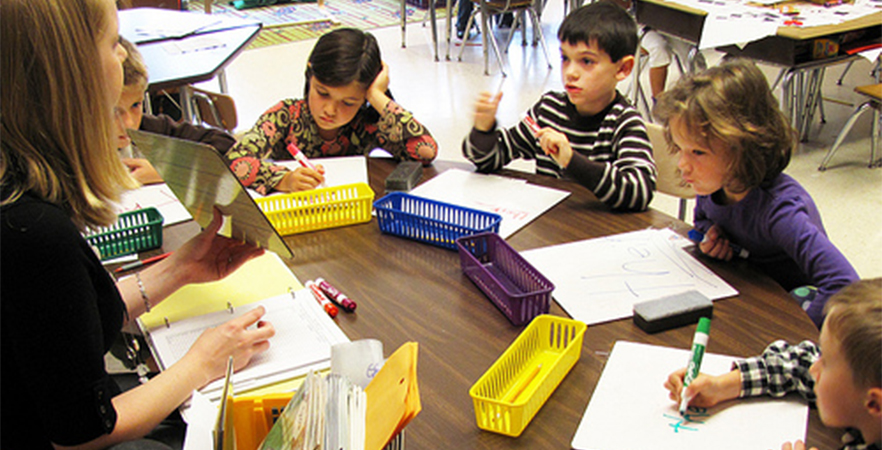Prairiewoods is preparing for our annual Spirituality in the 21st Century event May 5 and 6. This year, Dr. Lisa Miller will talk about the connections between spirituality and mental health. We asked Prairiewoods friend Kimberly Abram questions about her experiences as a school counselor and how she thinks Dr. Miller’s work could impact each of us.
 In the field of mental health, how do you think that learning about spirituality and the brain can impact the people you serve and the work that you do? Where do you see the need?
In the field of mental health, how do you think that learning about spirituality and the brain can impact the people you serve and the work that you do? Where do you see the need?
In my school counseling practice, learning about spirituality and the brain is essential for understanding the core of humanity—its purpose, function, and potential. This knowledge provides valuable insight into the intricate interplay between the mind, body, and spirit, helping us navigate the complexities of life. By deepening my understanding of spirituality, I develop greater empathy and compassion for others and their unique journeys. This perspective not only improves my interactions with those I serve but also makes my work more impactful. It deepens my commitment.
The need is immensely pressing. Today’s young people have access to a wealth of information, materials, and experiences that often deprive them of essential life lessons related to self-discovery. They are growing up in a society that encourages them to learn more about others—primarily through social media—rather than focusing on their own identities and inner lives. Unfortunately, spirituality has often become something they seek only in times of crisis. However, spirituality is much more than a rescue plan; it is a foundational principle that can significantly enhance our overall quality of life.
In her work, Dr. Miller references the benefits of shifting from focusing on achieving goals to cultivating a greater awareness of the world, people and events that surround us. How could adopting this highly attentive mindset be helpful in the field of school counseling?
It helps counselors to better understand the unique challenges and experiences of each student, promoting a supportive environment where students feel seen, heard, valued, and safe during child developmental stages. It keeps us attuned to the dynamics of the school community and current events that can help counselors identify emerging issues and address them proactively.
Ultimately, this mindset not only enhances the counselor’s effectiveness in supporting students but also contributes to a more inclusive and responsive school environment. It empowers counselors to guide students not just toward achieving individual goals, but also toward developing a greater sense of social awareness and responsibility, connecting them to a higher purpose of life.
What would you continue to do or start doing if you knew that cultivating your spiritual life would be helpful to your mental health?
I will continue to prioritize practices that foster a deeper sense of connection and mindfulness. My current daily system is setting aside time for daily reflection or meditation to help ground myself and reduce stress. I would also seek out opportunities for community engagement with populations that connect with my cultural identity, building connections to enhance my sense of belonging and support.
Furthermore, I would focus on helping others create a balanced routine that integrates these spiritual practices into my daily life, helping me to cultivate resilience and a more positive outlook on life. Proving practical strategies tailored to students and adults within a school setting can contribute to improving learning conditions and quality of life.
Knowing that developing one’s spirituality changes brain structure and strengthens resilience, how would you integrate spiritual practices or awareness into your life?
Knowing that developing one’s spirituality can change brain structure and strengthen resilience inspires me to seek a deeper connection with God, allowing me to navigate life’s ups and downs without losing my enthusiasm for living. I plan to regularly assess my thought patterns, internal dialogues, and the factors that influence my emotional state.
In my practice, I will courageously initiate conversations with students and staff, encouraging them to explore how their belief systems can serve as a foundation for healthier lifestyles. By fostering an environment where spiritual discussions are welcomed, I hope to empower others to reflect on their own spirituality and its potential benefits. This approach can be particularly beneficial in coping with changes in both the small and larger landscapes of life, promoting self-care and well-being.
—Kimberly Abram, K-12 Counseling & Work-based Learning Facilitator
Join Dr. Lisa Miller May 5 or 6 in Cedar Rapids, Iowa, or virtually (May 5 only) for Spirituality in the 21st Century: The Awakened Brain. Learn more here.
